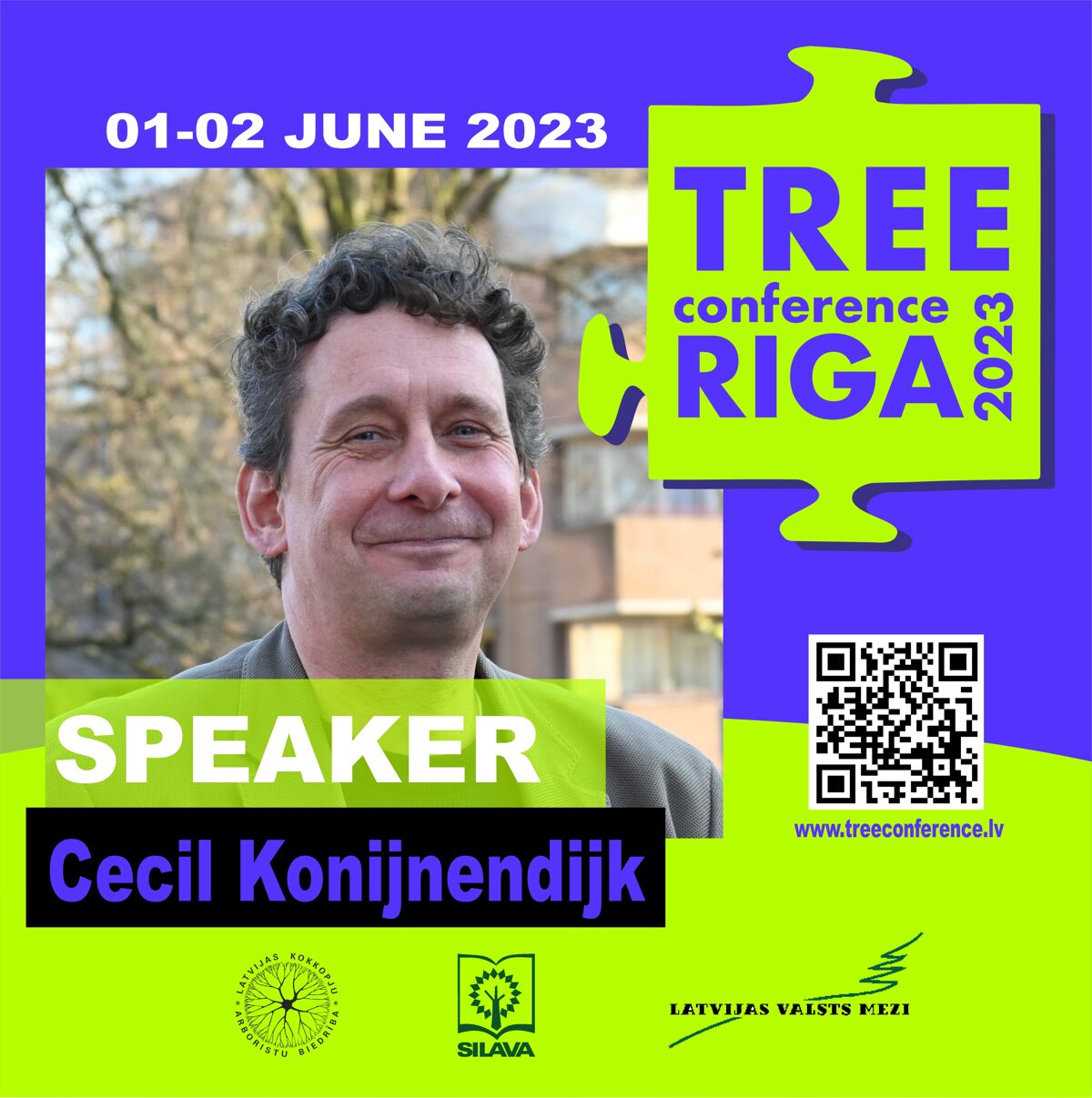
Cecil Konijnendijk
Title: Threes for trees: the 3:30:300 rule for greener and healthier cities
Abstract of presentation: The important contributions of urban trees and green spaces to for example, climate moderation and public health have been recognized. This paper discusses guidelines and norms that promote the benefits of viewing green, living amongst green, and having easy access to green spaces for recreational use. Having trees and other vegetation in sight from one's home, place of work, or school has important mental health and performance benefits. Local tree canopy cover is positively associated with cooling and other aspects of climate moderation. With public green spaces in proximity to one's home stimulates regular use of these areas and results in positive impacts on mental, physical, and social health. After analysing existing guidelines and rules for urban green space planning and provision, a new, comprehensive guideline was developed by the author in February 2021. This guideline, known as the '3:30:300 rule' for urban forestry, aims to provide equitable access to trees and green spaces and their benefits by setting the thresholds of having at least 3 well-established trees in view from every home, school, and place of work, no less than a 30% tree canopy in every neighbourhood; and no more than 300 m to the nearest public green space from every residence. Current implementation of this new guideline is discussed, as well as the advantages and disadvantages of using this evidence-based but also clear and simple rule.
Biography: Cecil Konijnendijk co-leads the Nature Based Solutions Institute, a think tank for the evidence-based greening of cities. He is also an honorary professor at the University of British Columbia and a visiting scholar at Wageningen University. Cecil has over 25 years of experience studying, teaching, and advising on aspects of urban forestry and nature-based solutions. He is widely considered as one of the world’s leading urban forestry experts. A Dutch national, he has lived and worked in Europe, Asia, and North America. Cecil helped found the leading academic journal Urban Forestry & Urban Greening, and edited seminal textbooks such as ‘Urban Forests and Trees’ and ‘The Routledge Handbook of Urban Forestry’. He has advised international organisations such as the United Nations, as well as national and local governments in more than 30 countries.